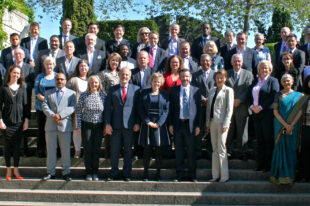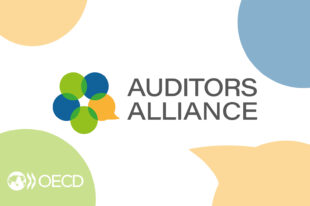CGR Issues Opinion on Climate Change Pressures

The Office of the Comptroller General of Costa Rica issued an opinion document to provide input to the Legislative Assembly regarding key elements that exert pressure on the Public Treasury as a result of climate variability and change.
The document’s relevance centers on the heavy consideration that must be given to climate change by public managers, particularly in timely risk administration, expenditure forecasts and the need to adapt or mitigate climate change effects.
Summary of Encountered Trends and Challenges
Repair and Reconstruction Costs (1988-2010). The Office of the Comptroller General estimated that annual repair and reconstruction costs of infrastructure affected by floods and droughts increased from ¢8,903 million in 1988 to ¢202,681 million in 2010 (representing 1.01% of the Gross Domestic Product (GDP) in 2010).
Between 1988 and 2010, the costs associated with extreme climatic events varied between 0.3% and 1.7% of the nation’s GDP annually, with a 3% (average) increase each trimester.
Increasing Trends in Cost (2011-2025). The Office of the Comptroller General also estimated rising costs in future responses to extreme weather events from 2011 to 2025. In a conservative scenario, these costs would absorb between 0.68% and 1.05% of the GDP by 2025; and a GDP between 1.64% and 2.50% in a scenario that predicts higher risk, which implies disbursing 1.47 times the maximum percentage of GDP that has been incurred to date.
The Challenge: Create a Climate Fiscal Framework for Costa Rica. It is propitious to create a climate fiscal framework—allowing for resource identification and projection for mitigating and adapting to hydro-meteorological and extreme climatic phenomena.
This framework should allow:
- Identification and accurate estimation of necessary resources;
- Resource allocation in accordance with priorities;
- Tracking climate expenditures and investments in budget accounts; and
- Making timely information available to the public and allowing for the analysis of citizen demands.
The fiscal climate framework is considered an important step to strengthen climate actions and promote a transformation toward resilience and a carbon neutral development path.





